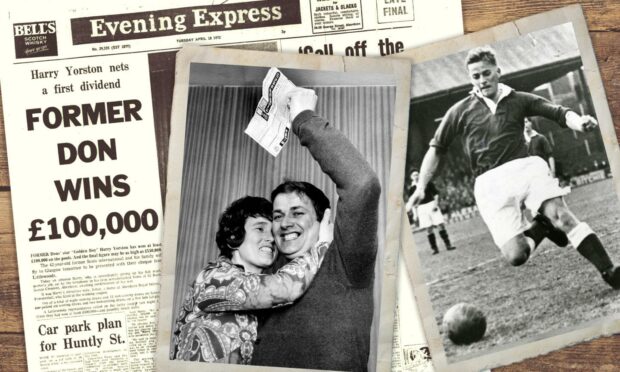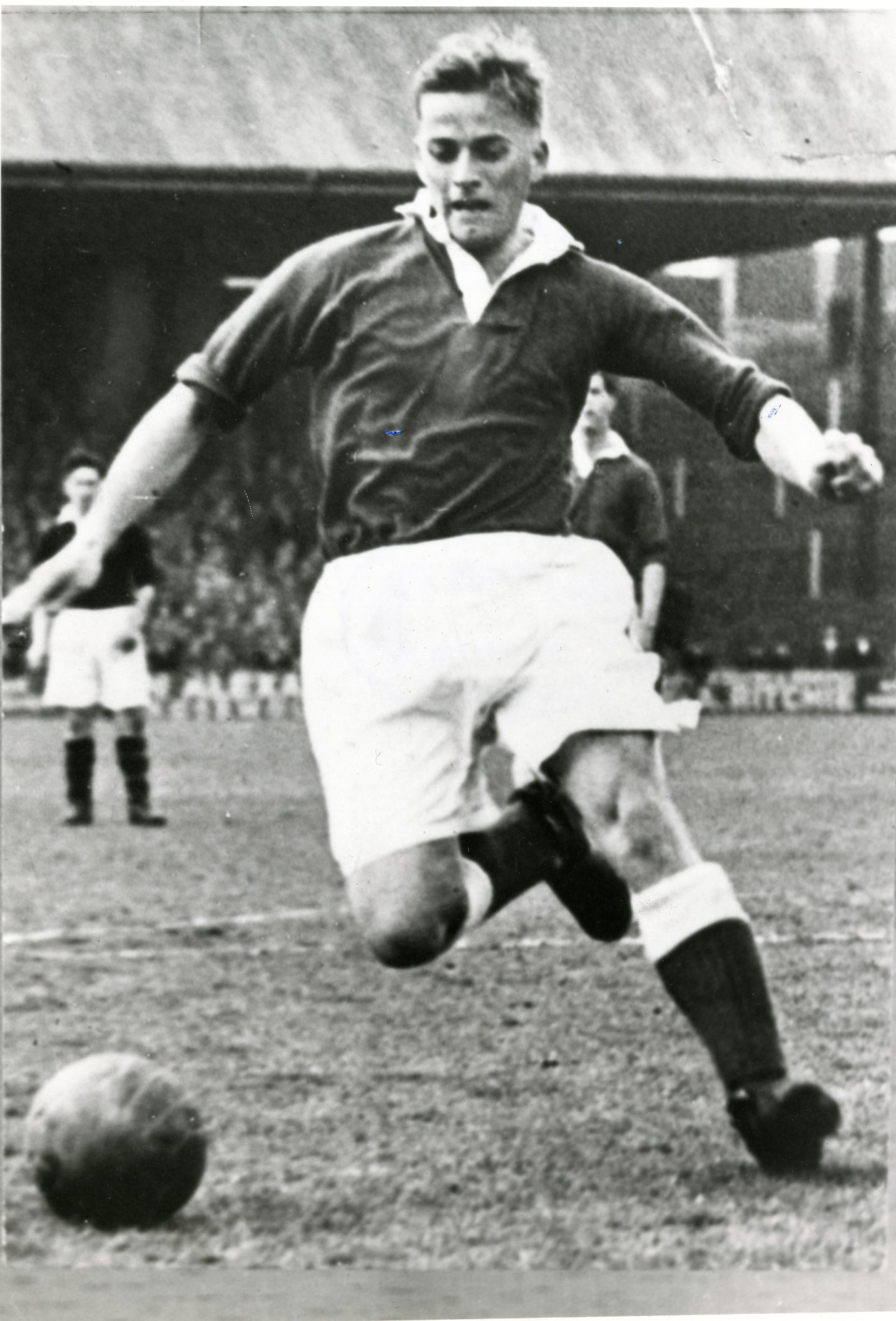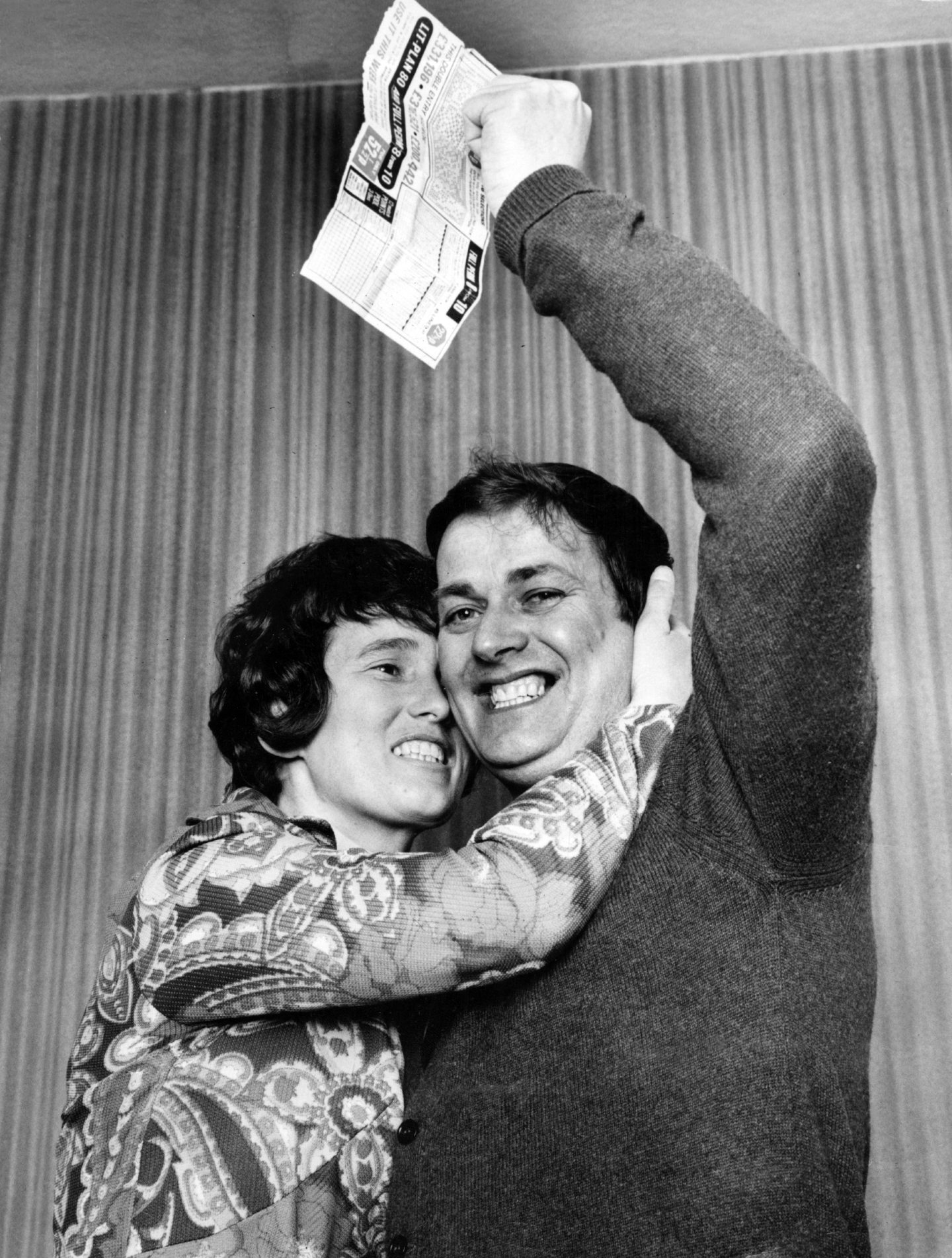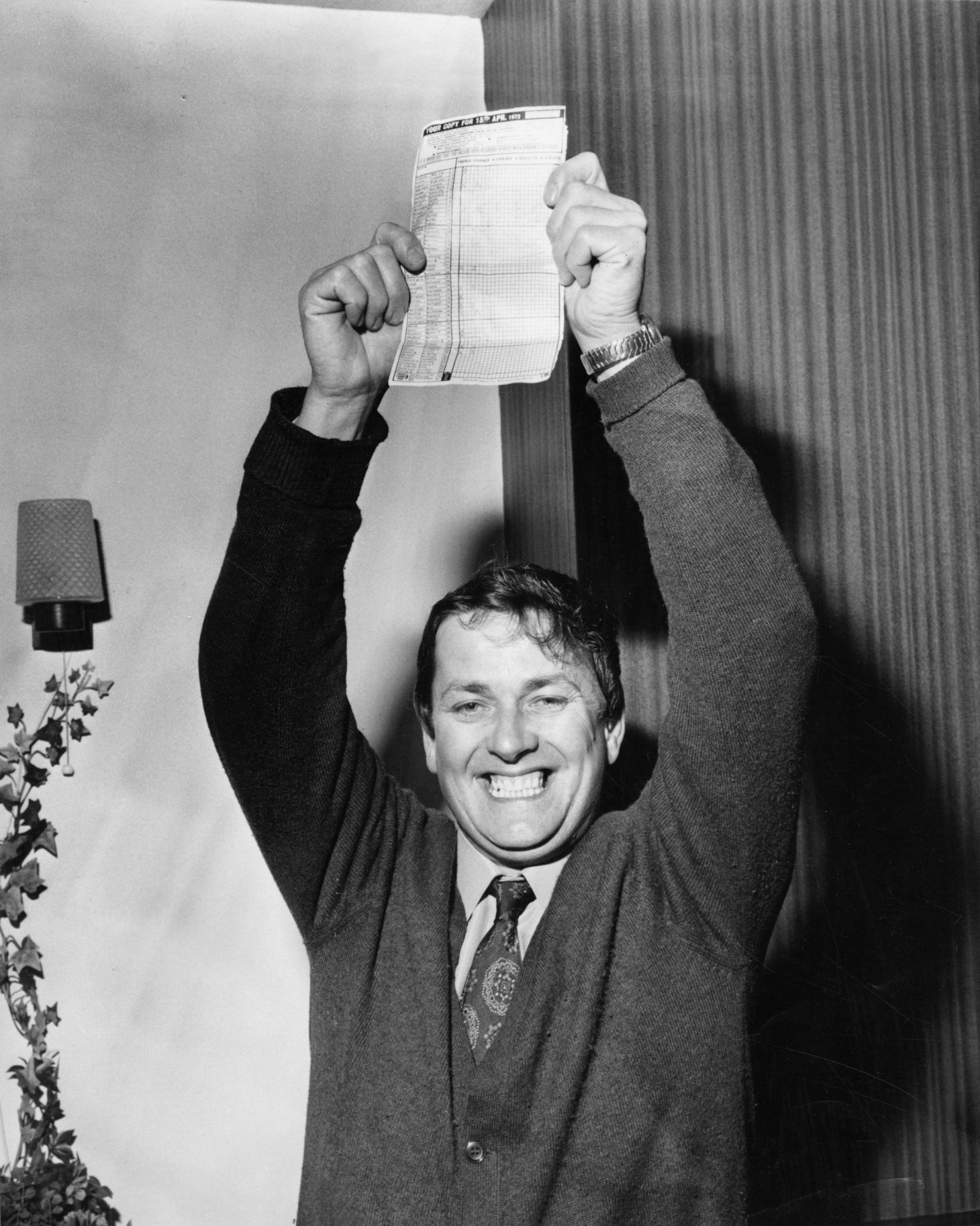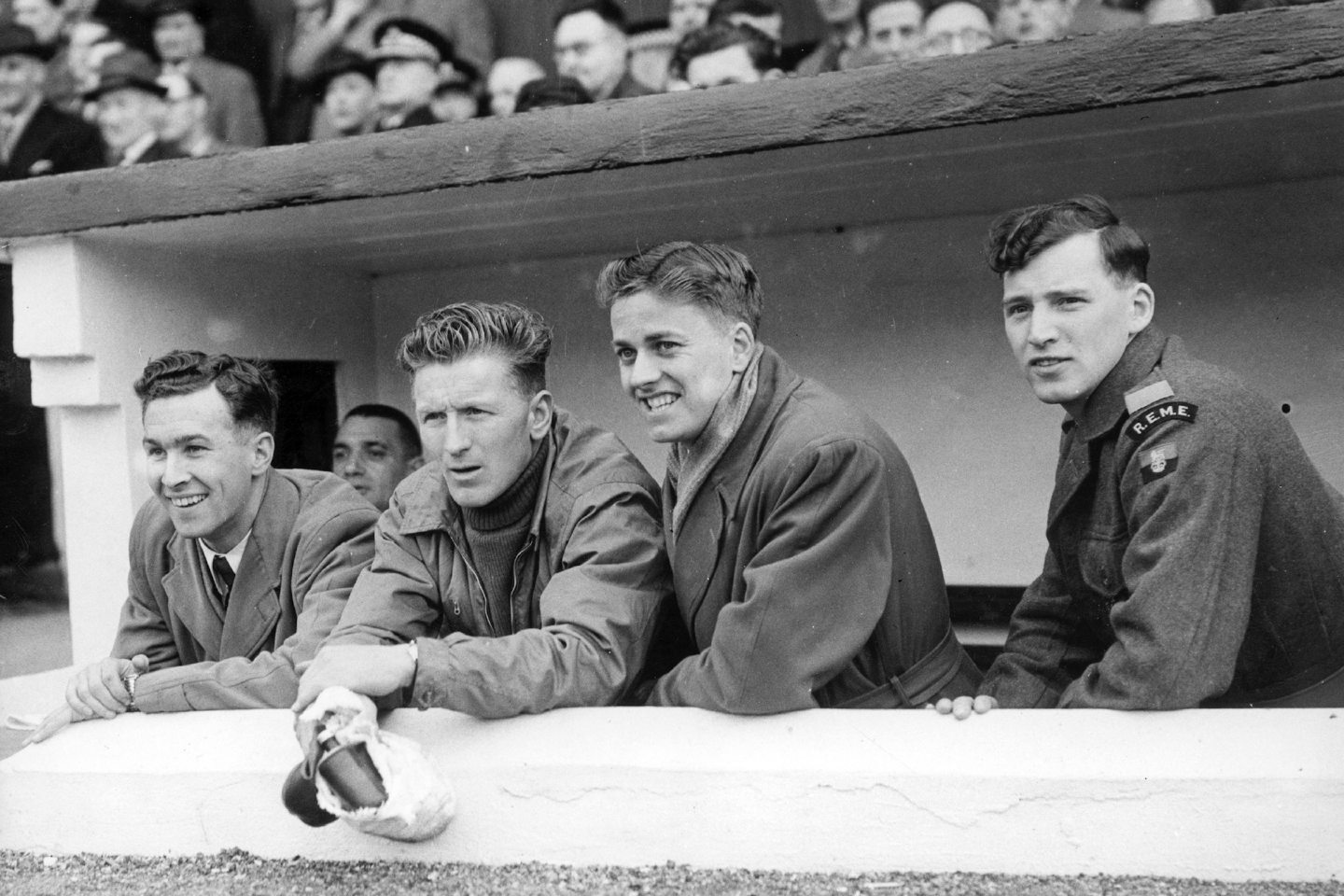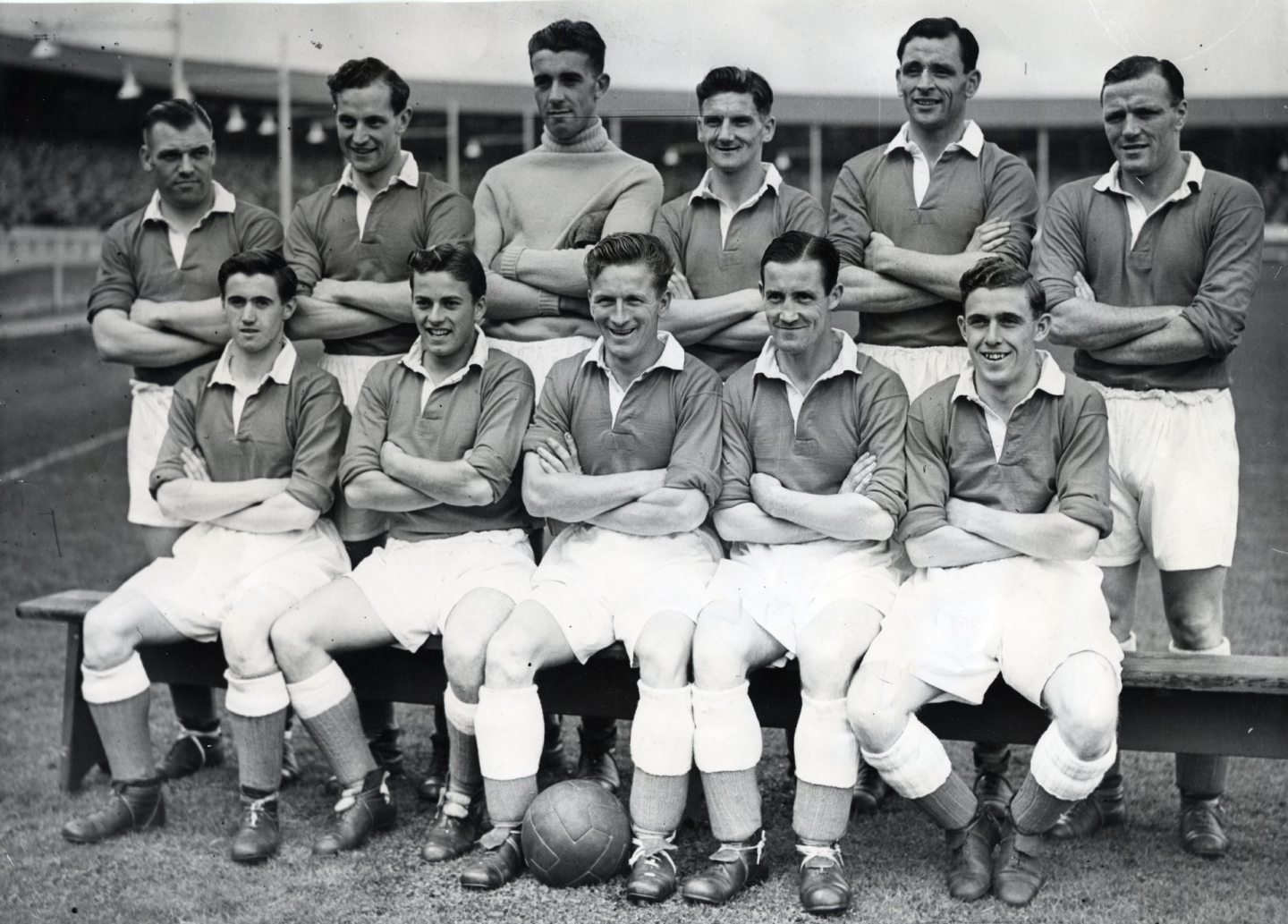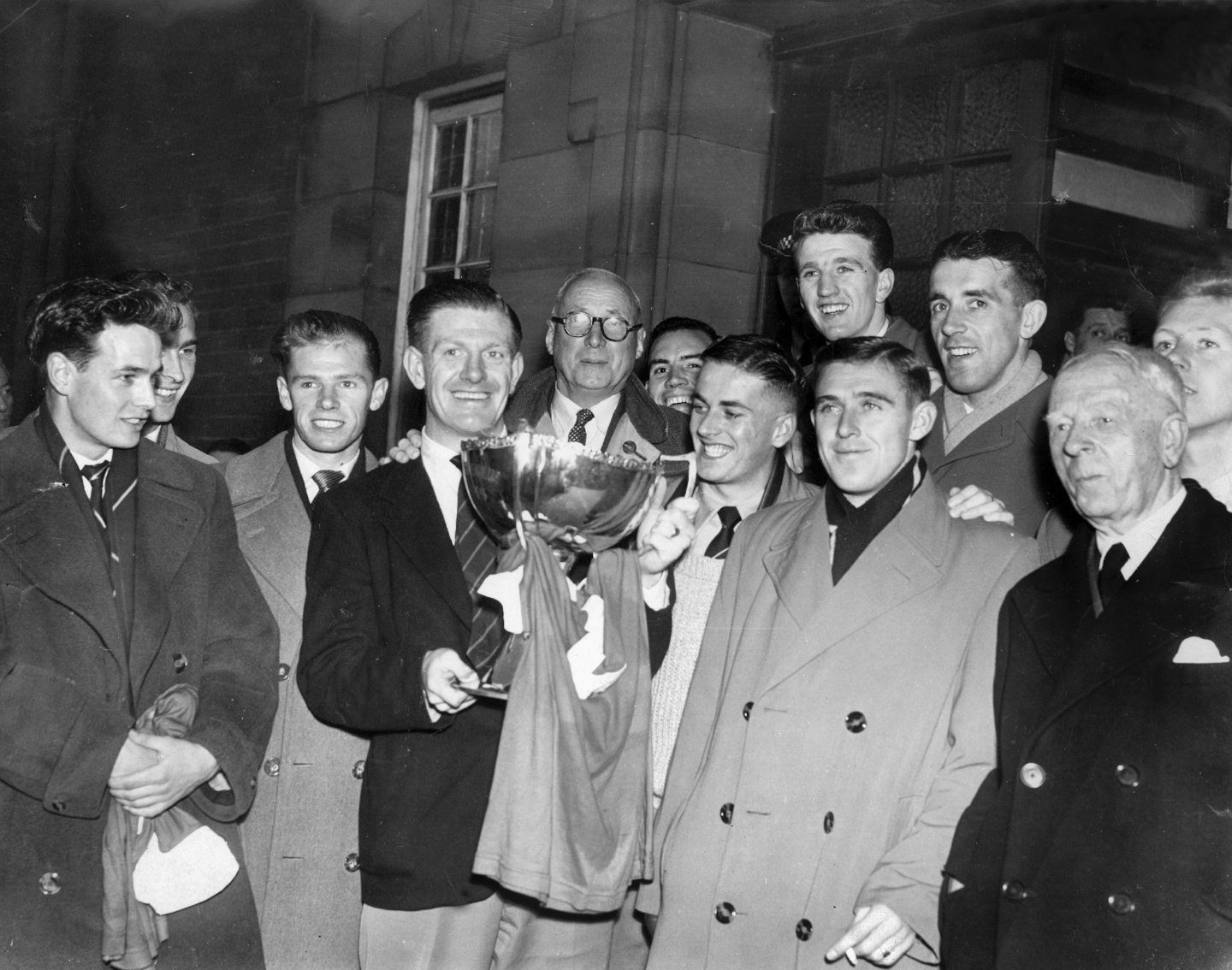He was the young lad who grew up kicking a football in his native Aberdeen and became one of the pin-ups of his generation.
Harry Yorston, the Dons star who gained the nickname ‘Golden Boy’, excelled for the Pittodrie club during their maiden league championship triumph, in 1954-55, and also gained Scotland recognition during that season.
During a career that spanned more than a decade, the popular figure played in 277 competitive games and notched up an impressive tally of 141 goals.
However, there was shock among both officials and many supporters when he announced that he was packing in professional football at the age of just 28 in 1957 to start a new job as a fish market porter in his home city.
Harry explained at the time that the decision was purely for financial reasons, because although Aberdeen players were being paid around £20 per week – which was as good as anything in British football – it was nowhere near the cash he could earn by hitching his wagon to the fishing industry.
And yet, that wasn’t why he re-entered the spotlight 15 years later when he and his wife’s photographs were all over the Scottish media after they hit the jackpot by winning more than £170,000 in the football pools in 1972.
Winning ties were picked by his wife
The news sparked an immediate flurry of interest.
In those days, tens of thousands of Scots filled in their weekly pools coupon, which were supplied by the main firms – Littlewoods, Vernons or Zetters – and whose agents collected their customers’ forms the length and breadth of the country.
As an ex-footballer, Harry was still a serious sports enthusiast and enjoyed his regular attempts at forecasting the outcome of a series of league matches in Scotland and England – not that he had any success in his predictions.
However, when he asked his wife Johan, a nurse at Aberdeen Royal Infirmary, to try her hand, Lady Luck almost immediately smiled in their direction.
And, soon enough, as they waited at their home in Burnieboozle in Aberdeen, they received a phone call from Littlewoods that confirmed the couple had won a sum that was the equivalent of nearly £2 million in today’s money.
The Evening Express reported on the Yorstons’ joy, following a tense wait to discover whether anybody else had a claim on the grand prize.
The paper stated: “The 42-year-old former Scots internationalist and his family will fly to Glasgow to be presented with their cheque by Littlewoods.
“Out of a total of eight scoring draws and 12 non-scoring draws on Saturday, she picked six scoring draws and two non-scoring draws on a five-bob (25p) Lit-plan (one of the various ways of taking part in the competition).
“Said Harry: ‘We were expecting £20,000 or £30,000, but he said the prize would be at least six figures. He phoned first and asked for me, but I was out in the garden playing football with my son (also Harry), so my wife answered the phone. Then she rushed out to let us know what had happened.”
He enjoyed a golden 10-year era, which included winning international honours, before he shook the football world by quitting sensationally.”
Evening Express journalist Ron Robertson
Harry revealed to the Press and Journal that he had been dipping his toes in the pools for several years without any hint of picking up a reward, as the prelude to handing over the reins to his wife.
He added: “It was only three months ago that I decided to let Johan pick the numbers – but, showing her female intuition, she has latched on to family birthdays and addresses and it has had devastating success.
“We’ve been told that this is Aberdeen’s biggest-ever pools win, so it is obviously terrific news, but this isn’t going to affect our way of life at all.
“It is just one of those things, but it offers us the chance to draw up some plans.”
As somebody who had previously enjoyed the spotlight and the trappings of football fame – along with his cult status in the Pittodrie side of the early 1950s – Harry wasn’t about to let this windfall transform his personality.
But he did admit that he wasn’t sorry about giving up his career in fishing, having swapped one set of nets for another more than a decade previously.
He said, a few days after the pools news: “I am planning to find a pleasant nine-to-five job because a 3am start at the fish market in the middle of winter with a fortune in the bank would be more than flesh and blood could stand.”
He added that relocating to a foreign villa or purchasing a big mansion held no appeal for him or Johan.
Instead, they were going to continue working, while boosting his family – in Aberdeen – and hers in Helmdsale in Sutherland.
They were never starry-eyed
A lot of water had passed under the bridge since Harry spent his boyhood years growing up in Park Road, a stone’s throw from Pittodrie Park.
But he was a mercurial figure with a repertoire of tricks from the outset and it wasn’t long after he started making waves with local juvenile side St Clements that he was spotted by Aberdeen as a burgeoning teenager in 1946.
He had to be patient and bide his time while completing his national service in Portsmouth as the prelude to his debut for the Dons on Christmas Day in 1947 against Third Lanark at Cathkin Park.
But there was never any question of his ability to fulfil the promise he had precociously demonstrated as a tanner-ba’ player in the streets.
And, within months, he was one of the must-watch performers for the posse of youngsters who stood outside Pittodrie with their autograph books and pencils.
Harry was one of life’s irrepressible individuals and the ‘Golden Boy’ moniker was bestowed on him almost from that debut display.
He recalled: “I had just come back up to Aberdeen while I was on leave from the army.
“The team had been struggling all season and (his own hero) George Hamilton was away to Hearts for a spell.
“I remember the game well as I scored from the first corner kick after just five minutes. That gave me lots of confidence and it was a great experience.”
These were golden days for the Pittodrie men, who reached the Scottish Cup final in both 1953 and 1954, only to be denied by the Old Firm on both occasions.
But there was no denying them the league title in the next, memorable season.
Harry recalled: “We set off that campaign with a new team and, after we had made a tremendous start to the league season, I joked with some of the lads that, if we kept this going, we could be league champions!
“Some of them laughed at that stage, but I knew that if we could get a run together, we would take some stopping.
“We were confident and we went into every game expecting to win whether at home or away.
“In that era, we had Paddy Buckley, Graham Leggat and Jackie Hather, all of whom were very quick players.
“We would hit sides on the break, which was virtually unheard of back then.
“Dave (Halliday, the manager) deserves a lot of credit for how he kept our feet on the ground. He was a gentleman and he really looked after us.
“If the title was for the club and the fans, it was also very much for Dave.”
Harry Yorston’s story was a spectacular mix of cheers and jeers – even Aberdeen fans realised that his thrilling attacking play was never going to work in some of the appalling conditions he endured throughout his career.
And there was genuine sadness at the news of his death at just 62, following a brief illness, at Aberdeen Royal Infirmary in May 1992.
Evening Express journalist Ron Robertson paid a fulsome tribute as well as acknowledging the maverick Yorston was one of a kind.
He wrote: “Harry had to put up with a fair amount of barracking, but such was his style, talent and enthusiasm that he answered his critics in the best possible manner – by scoring more goals.
“I was always a great admirer of the man who helped the Dons win the league title in 1955 and the League Cup the season afterwards.
“He enjoyed a golden 10-year era, which included winning international honours, before he shook the football world by quitting sensationally.
“Harry went on to display his skills in the Highland League for a spell, but he still could not stay out of the headlines for long.
“In 1972, he won a pools fortune, but, typical of the man, this did not affect his lifestyle whatsoever. He was the same as always – at home at Pittodrie.”
It’s the very definition of a local hero.
